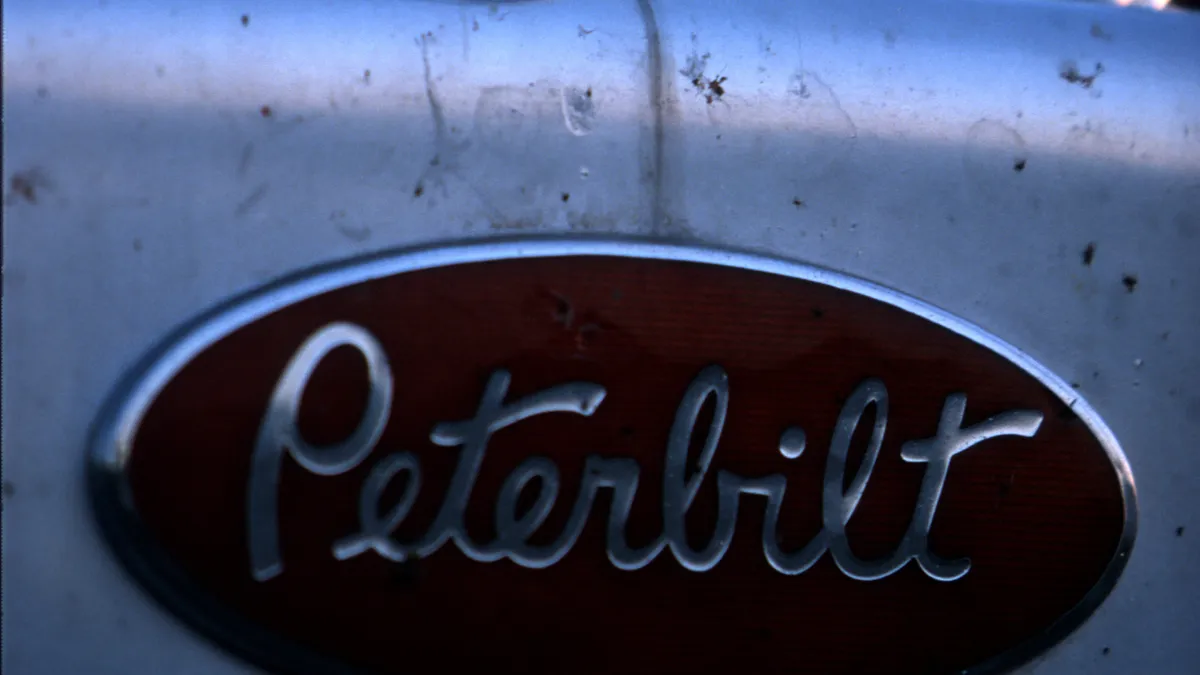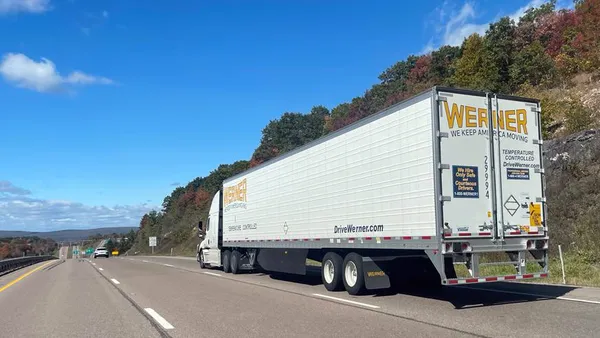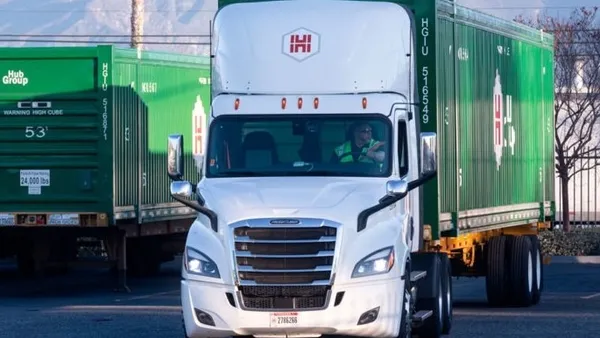Paccar and one of its shareholders are going head-to-head over whether the OEM should publicly report on how well its lobbying activities align with the climate goals of the Paris Agreement.
Calvert Research and Management, a Morgan Stanley-owned advisory firm that specializes in environment, social and government investments, wants the company to annually assess and detail lobbying done by the business and its trade associations.
Paccar shareholders will vote on the proposal April 25 at an annual meeting. A Paccar spokesperson declined to comment on the issue to Transport Dive.
The company’s board of directors denounced the proposal, urging shareholders to vote against the measure.
“PACCAR’s sustainability leadership enhances the environment, improves customers’ operations and benefits stockholders,” the board said in its letter to shareholders.
Investment advisors such as Calvert, as well as pension funds, have pressed companies for change in recent years, claiming businesses’ financials could be compromised if climate effects worsen, creating greater economic instability.
Last year, shareholder proposals on ESG matters drew votes across at least 98 major companies in the first half of last year, according to data collected by the law firm Orrick, Herrington & Sutcliffe.
However, the firm also found that out of 221 ESG-related proposals, only 21 received a passing vote. Climate-related reporting proposals had a nearly 29% passing rate, according to the survey.
Investor wants more reporting from Paccar
Calvert is looking for more specific action and transparency from the OEM, particularly on its lobby positions regarding renewable fuel vehicles.
The financial firm noted in its filing a “lack of clarity” from Paccar on its policy position toward EVs. It stated that such confusion “may undermine investor confidence in PACCAR’s ability to make the necessary transition” to widespread EV adoption, according to its shareholder letter.
In the proposal, Calvert requested Paccar detail how it will mitigate potential financial risks if its lobbying clashes with the Paris Agreement’s climate goals.
The move comes as U.S. states are getting more aggressive about mandating the trucking industry’s transition to renewable energy sources. Last month, the Environmental Protection Agency approved California’s bid to phase out diesel trucks and require 75% of Class 4–8 trucks sold to be zero-emission vehicles by 2035.
Paccar stands by its environmental leadership
Paccar’s board says the company’s activities already align with the Paris Agreement, including its greenhouse gas emissions targets.
The company’s 2022 annual report listed those targets, committing to cut vehicle emissions by 25% and reduce international operation emissions by 35%, both by 2030. The company affirmed in the report it’s on track to meet the objectives.
The company also noted in its shareholder letter that environmental scorecards from the nonprofit CDP have given the company an “A” or “A-” score for the past eight years. Such a score denotes a company’s environmental leadership, according to the organization, and Paccar’s “A” score in 2022 put in the top 1.5% of over 18,000 companies worldwide, the letter said.
While the scores represent an accomplishment, CDP notes that a top score doesn’t mean a company is finished with its environmental responsibility. Instead, the score represents a company’s transparency about disclosure and performance on climate change and environmental issues, meaning businesses can still make progress in such areas.















